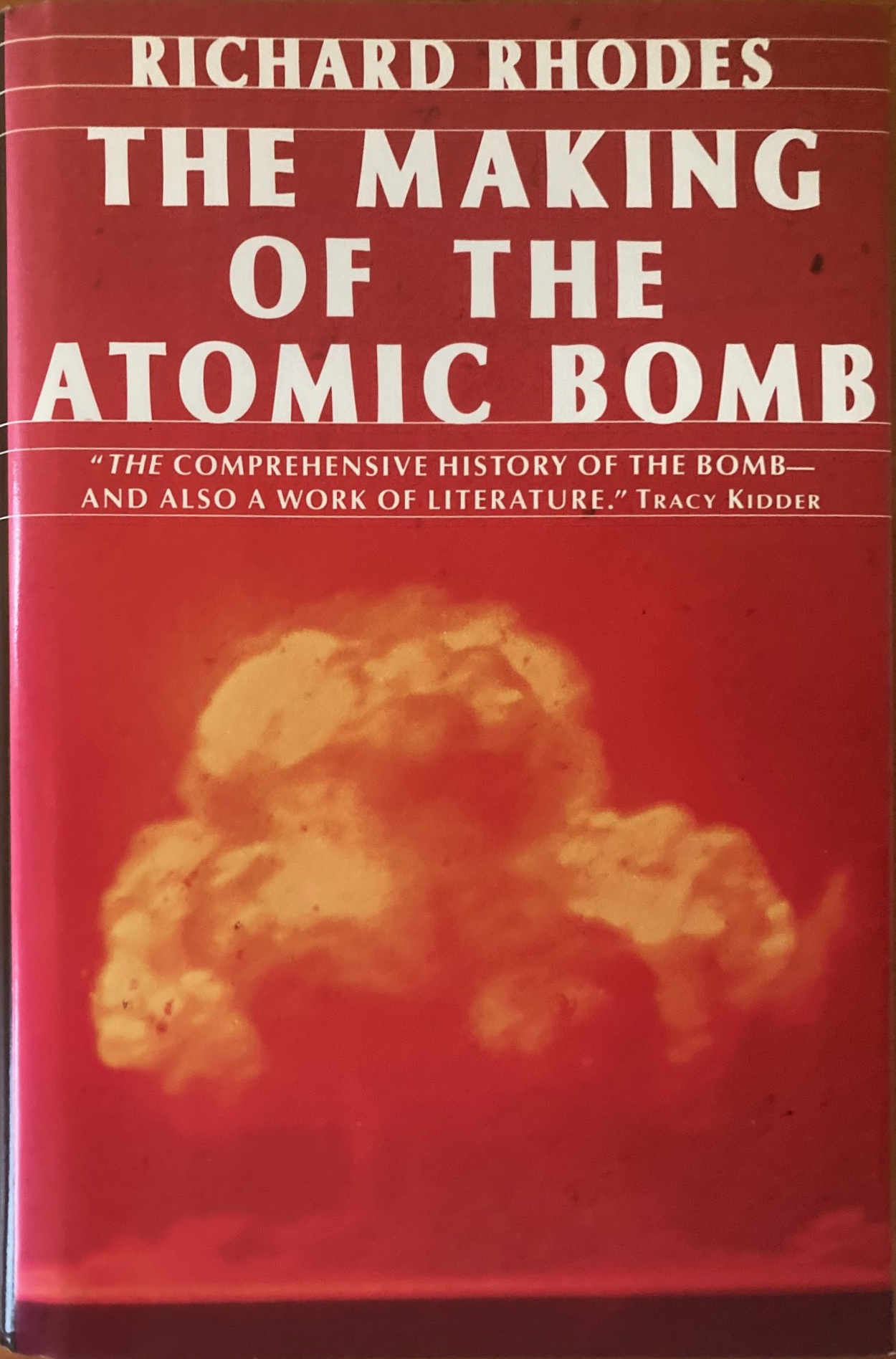Hardcover, 886 pages
English language
Published 1987 by Simon and Schuster.

Hardcover, 886 pages
English language
Published 1987 by Simon and Schuster.
The Making of the Atomic Bomb is brilliant history, a book that can be compared in its sweep and importance to William L. Shirer's The Rise and Fall of the Third Reich.
Richard Rhodes tells, for the first time, in rich, human, political and scientific detail, the complete story of how the bomb was developed, from the turn-of-the-century discovery of the vast energy locked inside the atom, to the dropping of the first bombs on Japan.
Few great discoveries have evolved so swiftly—or been so misunderstood. From the theoretical discussions of nuclear energy in the laboratories and class rooms of academia to the bright glare of Trinity was hardly more than a span of twenty-five years. What began as merely an interesting speculative problem in physics grew into the Manhattan Project, and then the Bomb, with frightening rapidity-truly a Second Creation. Scientists who were known only to their peers-Szilard, …
The Making of the Atomic Bomb is brilliant history, a book that can be compared in its sweep and importance to William L. Shirer's The Rise and Fall of the Third Reich.
Richard Rhodes tells, for the first time, in rich, human, political and scientific detail, the complete story of how the bomb was developed, from the turn-of-the-century discovery of the vast energy locked inside the atom, to the dropping of the first bombs on Japan.
Few great discoveries have evolved so swiftly—or been so misunderstood. From the theoretical discussions of nuclear energy in the laboratories and class rooms of academia to the bright glare of Trinity was hardly more than a span of twenty-five years. What began as merely an interesting speculative problem in physics grew into the Manhattan Project, and then the Bomb, with frightening rapidity-truly a Second Creation. Scientists who were known only to their peers-Szilard, Teller, Oppenheimer, Bohr, Meitner, Fermi, Lawrence, von Neumann—stepped from their ivory towers into the limelight in less than a single decade. Richard Rhodes takes us on that journey and gives us the definitive story of man's most awesome discovery and invention.
In the process, he destroys many of the myths that have surrounded the making of the bomb. He shows us a far more ambivalent Truman than we have known, less certain than many of the scientists them- selves about the wisdom of dropping the bomb, who could write, "I fear that machines are ahead of morals by some centuries and when morals catch up perhaps there'll be no reason for any of it"; he reveals in full detail the abortive Japanese nuclear project and the hardly more successful German one; above all he shows us step by step, minute by minute, how science, technology and politics joined to produce the inevitable.
No novelist could have invented a richer cast of characters, from the thinkers to the politicians, the military men, the engineers — and even the traitors for although the Manhattan Project was the biggest secret of the Second World War, its details were being leaked to Russia from the heart of the project itself.
We see Szilang arriving in London to proselytize for the idea of nuclear energy only to repudiate it in horror once it had accomplished. Oppenheimer at Berkeley sitting down to calculate how many pounds of uranium would be required to make an atomic bomb, Bohr telling Danish audiences that uranium might well fission with vast explosive force—except that preparing the material was beyond present technology, Enrico Fermi looking out his window in the physics tower at Columbia over New York City and cupping his hands around an imaginary sphere of uranium as he says to himself, "A bomb no bigger than that it would all disappear."…
When Bohr arrived at Los Alamos, his first question about the weapon they were building was "Is it big enough?" What he meant was is it "big enough" to force a change in the way the world deals with conflict, "big enough" to force an end to war? It was big enough to accomplish both, but the former is only beginning to become apparent.
This is the theme of The Making of the Atomic Bomb. Around it, Richard Rhodes has written a classic—the ultimate account of the most earthshaking scientific and political event of our century, perhaps of human history.
It is at once a tour de force of narrative power and a document as powerful as its subject.